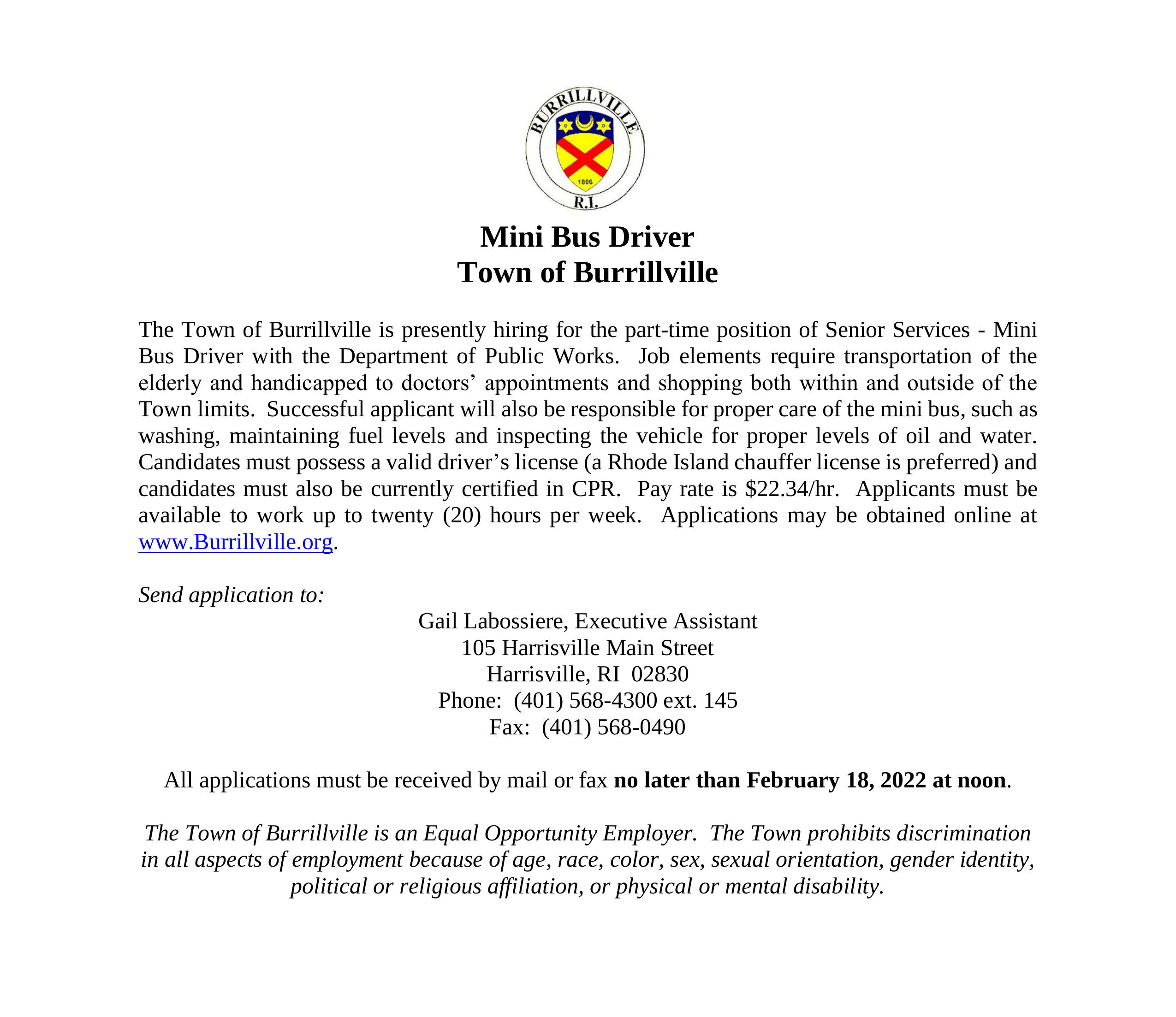The following are briefs and news from around the Blackstone Valley.
Police chiefs plan for Super Bowl enforcement
| The Rhode Island Police Chiefs Association is reminding the public that law enforcement will be out in full force around Super Bowl Sunday, and that it is never acceptable to drive while impaired. The group scheduled press event leading into Super Bowl Sunday to promote the concept of the teamwork needed to reduce roadway fatalities. RIPCA and partner agencies are working to enforce the message of making good decisions when it comes to driving impaired and distracted. |
| For safety tips and reminders related to safe Super Bowl Sunday behaviors, courtesy of the National Highway Traffic Safety Administration, click here. Black History Month Challenge announced for Rhode Island youth Citizens Bank has partnered with EVERFI on an essay contest in honor of black history month with a chance for high school student to win a $2,500 scholarship and a new Apple MacBook Pro. The Black History Month Challenge aims to raise awareness and provide educational opportunities focused on Black experiences as well as award eleven student scholarships. The competition will take place throughout February – uses EVERFI’s African American History courses to help high school students better understand the Black experience through education that highlights Black perspectives, successes, and struggles. The month-long challenge, created by social impact education innovator EVERFI, features four digital lessons and a capstone essay contest in which students will share a plan for maintaining a year-round conversation about Black history in their community. Eleven winners across Pennsylvania, Rhode Island, Connecticut, Massachusetts, Michigan, New Hampshire, Ohio, New York, and one national winner will each receive a $2,500 scholarship and a brand new Apple MacBook Pro, courtesy of Citizens Pay. Students will explore both historical and current events and learn about the many “firsts” that Black leaders have accomplished in the business and medical fields while also showcasing Black professionals who have blazed trails and made significant contributions to their respective sectors. To learn more about the Black History Month Challenge, visit www.citizensbank.com/EVERFI Valentine’s Day scams Lonely hearts beware: Valentine’s Day is peak season for online romance scams. SocialCatfish.com has released a report on the State of Internet Scams 2021 using data from the FBI, IC3 and FTC, noting that Americans lost a record $304 million to romance scammers in 2020, up from $201 million in 2019. The numbers are projected to increase further when the 2021 government numbers are released as more people have looked for love online since COVID-19 began. To help, the group has published the below, “Five Signs You Are Being Catfished This Valentine’s Day,” along with five ways to avoid becoming a victim. Cannot Meet Because of COVID: The hallmark of a catfish scammer is to come up with excuses of why they cannot meet, such as pretending to be in the military overseas. The pandemic gives them a built-in excuse not to meet. Be careful. Will Not Video Chat: The oldest excuse in the book… they cannot video chat with you because their video camera is supposedly “broken”, or they do not have the best access to Wi-Fi. These are red flags. They Ask You for Money: Once they form an emotional connection with lonely victims, they ask for money. During COVID-19, scammers have begun saying they are sick and need help with treatment, or are low on food, water, and other supplies. Poor Grammar: If the person claims to be American, but has terrible grammar, they may be a scammer. Confesses Love Quickly: If you are stuck in your house with limited contact with your loved ones, then someone else’s sweet words can win you over. Scammers no the sooner they win your trust the sooner they can drain your bank account. Beware of someone who is moving too fast. Ways to Avoid Becoming a Victim: Never Give Money: Do not give anyone you meet online money, no matter the reason. Meet or Video Chat: Do not form a relationship with someone who will not video chat with you or meet you in person. Do not Give Personal Information: Scammers can use basic information to commit identity fraud, get access to your banks and steal your money. Conduct Thorough Background Checks: Do not take someone’s word for it. Use reverse look-up sites to verify information, images, email addresses, phone numbers and online profiles. Take Things Slow: If you like someone online, do not let them rush you. Nigerian romance scammers will be pushy about falling in love right away. If that is the case, know something is not right. |








